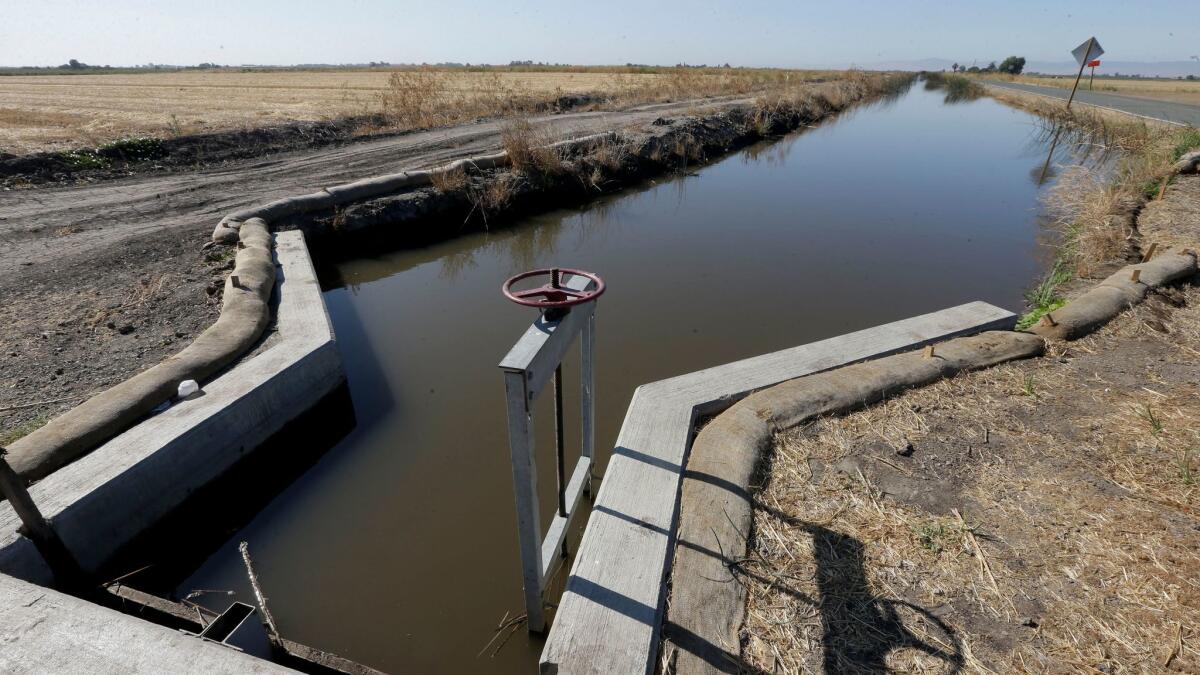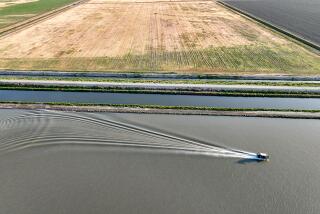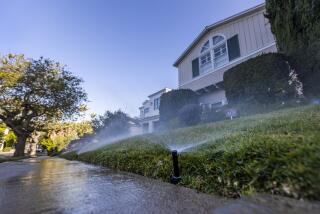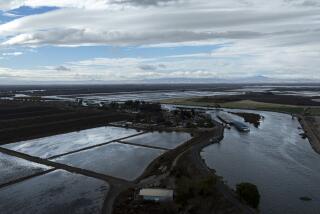Editorial: Legislature, don’t mess with California’s water umpire

As California water becomes an increasingly precious and contentious resource, the state needs an umpire with the power to enforce laws against illegal diversions and protect the rights of the public and others with enforceable claims to state water. That decisionmaker must be both muscular and fair.
There is indeed such a water umpire in California. It has the rather cumbersome title of State Water Resources Control Board, and although for many years it was quite lax in its approach to enforcement, the long drought has roused it from its slumber and it has begun to show its potential. That’s a welcome development for most of the state’s water users and rights holders.
But not for all. Some of the private businesses and even public agencies that sell water to farms and other users have gotten quite used to marginal oversight by a sleepy water board that barely frowned at water theft or misuse. Some have prevailed upon Assemblyman Adam Gray, a Democrat from Merced, to carry a bill to undermine current the enforcement process, and the entire Assembly has signed on — apparently in the mistaken belief that the board has a built-in conflict of interest that can best be remedied by adding additional layers of bureaucracy and returning to the days of more plodding oversight.
The supposed improvement offered by the bill is to take the hearings away from the water board and assign them to a panel of administrative law judges.
AB 313 is the latest in a series of attempts by water agencies to get the board off their backs by gumming up the enforcement process. Proponents of the bill may have gotten as far as they have because the mechanics of administrative law are so obscure to the average Californian, and apparently to the average lawmaker. In fact, the current process follows time-tested and court-tested standards and works just fine as it is.
Like many oversight agencies, the water board is made up of gubernatorial appointees who are vetted and confirmed by the state Senate. The board divides its staff into two parts that operate independently of one another, as befits their particular tasks.
A prosecutorial team vets complaints and chooses the most serious ones to bring to the board for hearing and adjudication. A separate staff of water engineers, scientists and other experts then assists the board in its hearings. The board can dismiss the complaint, assess a fine or order the water user to stop doing whatever it’s doing. A user that is unhappy with the board’s decision can seek review in superior court.
This is the process that other state agencies use to, for example, suspend liquor licenses or curb contracting abuses. It’s the way the water board has operated for years, although the prosecutorial staff has brought too few actions and the board itself has been too content to ignore unlawful water diversions.
Now, though, a host of water agencies is complaining that the water board is both prosecutor and judge and that its process is thus beset with biases and conflicts of interest.
No, it’s not. A state agency with quasi-judicial powers necessarily has distinct prosecutorial and adjudicatory components. The state Supreme Court already has considered whether the water board’s structure adequately protects due process and concluded that it does.
The supposed improvement offered by the bill is to take the hearings away from the water board and assign them to a panel of administrative law judges — with no particular expertise in water law and without a staff of engineers, scientists and water experts at their ready disposal — in a different state office. This panel wouldn’t make the final ruling in a case, however. Instead, it would make a recommendation — to the water board.
So the initial review would be backed by less subject-matter knowledge, but the board’s staff would still prosecute and a different part of the board’s staff would still offer expertise. The board itself would still render a decision. All the bill offers is an extra hoop through which everyone must jump.
That means extra time, and that’s probably the point. In a drought, when water is in short supply and a season’s worth of the stuff could mean the survival of one crop versus another or versus a salmon run, the water board needs to be able to act not just fairly and decisively but swiftly. The proposed change in the process takes California in the wrong direction.
Follow the Opinion section on Twitter @latimesopinion and Facebook
More to Read
A cure for the common opinion
Get thought-provoking perspectives with our weekly newsletter.
You may occasionally receive promotional content from the Los Angeles Times.






